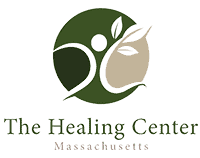Oftentimes, those who struggle with addiction have coexisting mental health conditions. Dual diagnosis treatment in Boston can help those individuals who are struggling with both conditions. Treating one condition and not the other often leads someone back to using drugs and alcohol as a means of coping. Mental health can become prevalent once the substances are removed, and leaving these mental health conditions untreated can be a difficult undertaking for someone in early recovery.
What is Dual Diagnosis?
Dual diagnosis is when someone who is struggling with substance abuse also struggles with mental health. Whether it be depression, anxiety, panic disorders or PTSD, struggling with mental health conditions as a person is trying to end substance use disorder can be difficult to bear. Dual diagnosis treatment in Boston helps those individuals struggling in such a way. Leaving mental health untreated as someone is being treated for substance abuse can lead someone back to drugs and alcohol in order to self medicate the untreated mental health conditions they could be struggling with.
Common Co-Occurring Disorders
While any mental health condition can coexist with substance abuse, there are some more commonly seen conditions. Bipolar disorder, depression and anxiety are among the most common. These mental health conditions exist within millions of people on a daily basis, so it is easy to see why they would also be a part of the lives of those who struggle with substance abuse. Dual diagnosis treatment in Boston can not only treat the substance abuse issues by removing the drugs and alcohol from the person’s system, and then teaching new skills and techniques to coping, but it will also begin the process of treating any underlying and co-occurring mental health conditions a person may be experiencing.
Benefits of Dual Diagnosis Treatment
The benefits of dual diagnosis treatment in Boston are far reaching. Treating both the mental health and addiction to drugs or alcohol can help to ensure that an individual has a solid and productive start to recovery. When addiction alone is treated, these mental health conditions can become exacerbated making it extremely difficult to live day to day. Often, a person who continues to struggle with untreated mental health after treating the addiction can return to using drugs and alcohol to alleviate the symptoms of depression or anxiety that may arise. This use of drugs and alcohol as a means of coping often only exacerbates the symptoms of the mental health conditions. It is a vicious cycle, and treating both mental health and substance abuse can ensure that someone has the best start to a life in recovery.
What to Expect in Dual Diagnosis Treatment
Dual diagnosis treatment in Boston can include therapies that are meant to get to the root of the problems. These therapies are essentially used to help change thinking and behaviors that lead to using drugs and alcohol. They target the root causes of addiction, and work to enforce positive and productive coping and thinking strategies to prevent relapse. While learning these skills to combat the addiction, someone is simultaneously learning new and positive ways of coping with any signs and symptoms of mental health conditions that may also exist. It is often said in individuals who struggle with drugs and alcohol that they didn’t want to feel feelings of depression or anxiety, so having trained professionals who can treat both the addiction as well as these unwanted and uncomfortable feelings can help to begin someone off on the path of recovery from addiction to drugs and alcohol and mental health conditions.
Common Therapies Used in Treating Co-Occurring Disorders
Everyone recovers differently. It is not linear, one size fits all processes. Using different techniques and therapies can help to ensure that all routes have been taken to ensure that dual diagnosis treatment in Boston is as helpful as can be for someone struggling. Common therapies used in treating mental health and addiction include:
- Cognitive Behavioral Therapy (CBT): CBT is a therapy used to help change negative thinking and behaviors into positive ways of dealing with things.
- Dialectical Behavioral Therapy (DBT): DBT is a form of therapy in which a person learns how their intense emotions affect them, and learn how to cope with them.
- Trauma therapy: trauma therapy focuses on the healing and processing of traumatic experiences that feed into mental health and addiction
- Family therapy: addiction affects the entire family, so therapy including loved ones can help someone struggling to process and express feelings in a healthy way with their family.
Dual diagnosis treatment in Boston is available, and could help someone to begin the healing process. Getting help is the first step.
Get Better In Boston
Struggling with mental health or addiction alone is a difficult process, but when both mental health and addiction coexist in the same individual it can cause complications when trying to treat the person. Dual diagnosis treatment focuses on treating both disorders, simultaneously. If you or a loved one are struggling, The Healing Center can help. We treat co-occurring disorders and help to ensure the best possible start to a life in recovery from both mental health and addiction to substances. Contact us today.







